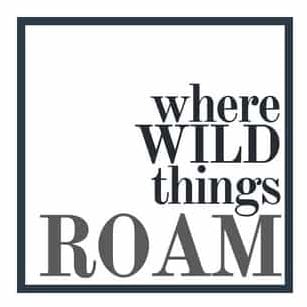The wilderness calls, tips for first time campers
If you can feel the pull of a night spent under the stars, here are some planning tips for your first camping trip to help you enjoy all that nature has to offer.
Getting outside and reconnecting with nature is an ideal break from a busy urban lifestyle, time slows down, stress is relived, and you appreciate everyday conveniences normally over looked; like indoor plumbing. Although camping can be tough if the trip isn’t well planned for, so organisation is key to a successful outdoor adventure.
Deciding Where & When to Camp

What type of scenery do you feel most drawn to; rolling hills, rainforest, bushland, water views, beaches? Australia has a diverse landscape, and an endless supply of places to set up camp. There are Camping areas at national and regional parks, large dams, caravan parks, and everywhere in-between.
There are a lot of sites online to look for local camping grounds, or search any area that you are interested in exploring. Find A Site is a great place to start looking for your ideal location. It is important to know that you can’t camp anywhere, and most sites will require a permit or small fee before you camp. Payment is simple and is done when you get there, over the phone, or online depending on where you are going.
When considering what time to go, it is a good idea to avoid peak periods like, school holidays and long weekends, to get the most out of the experience. Unless of course you’re a social-butterfly who thrives on crowds of holidaymakers (apparently they exist). For those seeking solitude and privacy, there are camp sites that require a walk or hike to the location. While not a good idea for the first couple of trips, it is something to keep in mind.
The weather is also something that should be thought about when planning, such as wet seasons and cold winters, especially as some camping sites don’t have amenities like; toilet blocks, showers, and electricity. Which is something to think about when choosing a site, are you feeling ‘I’m sleeping outside adventurous’ or ‘I’m digging a hold near a large bush for privacy reasons adventurous’? Keep in mind the answer to this, will determine the amount of supplies you will need to pack.
Fun Camping Ideas

Finding a comfortable place to sit and relax with a good book can be challenging sometimes. Gravity and uncomfortable camp chairs be damned, bring along a hammock! It is easy to find hammocks that are travel friendly and compact.
If you’re a bit of a nature nerd or love learning useful things about the surrounding environment, pick up a guide-book on local flora and fauna. It’s great to forage for your own bush food (guaranteed gluten-free, and vegan friendly), but be extremely careful and always double-check the information before eating anything you’ve foraged for.
Get creative and string up solar-powered fairy lights to add a touch of magic to the camp. It will make the setting up process of camp fun, add personal flair, and it’s also illuminating; helping you to not fall on your face in the middle of the night during an impromptu toilet trip.
Tents

No more shifty poles in holes, pop up tents have made camping easier than ever. A lot of time and patience is saved as popup tents take no time to set up or pack away. But if you go with classic style tent be sure to give it a test run at home first to make sure you have all the parts, and an idea of what to do, making the process run smoother.
There is a huge range of tents to choose from and they usually fit in two categories; Canvas and Nylon. Nylon tents are ideal for beginners as they are inexpensive, easy to take care of, and light weight. Yet they can get quite hot in summer, chilly in winter, and aren’t as durable as canvas. Canvas tents are ideal for avid and regular campers as they are spacious, easy to set up, fare better in weather; however they can be expensive, heavy to carry, and require regular maintenance.
Safety

Make sure to pack a first aid kit that is fully stocked (especially Band-Aids), and generally be mindful of safety. Read signs carefully, make sure your water is filtered, be wary of dangerous animals, and responsible around camp fires. Because nothing says bad camping trip like; “oh crap I have no eyebrows” and “my blisters are filled with dirt and sweat that have formed into a not so delicious mud”.
Food

If you are planning on cooking, a portable gas stove is quick and easy, plus a lot cleaner than using a fire (check if fire is prohibited). When deciding what food to take, take the time to think about how easy it is to prepare, how many ingredients you will need, and try to keep meals as simple as possible.
It’s a great idea to take at least one meal that you have already made at home, that way all you have to do is heat it up, thus cutting preparation, cooking, and cleaning time.
Also consider freezing your own water in large bottles for your esky, it will last twice as long as brought ice. When it comes to drinking water make sure you not only pack water but a water filter or purification tablets.
Basic Check List
Gear:
- Tent
Sleeping bag/air mattress/roll-out mat
Pillow
Spare blanket
Folding chair & table
Shovel
Flash light and head lamp (extra batteries)
Cooking:
- Gas stove/ firewood
Gas bottle
Lighter/matches
disposable eating utensils (will make life easier)
Pot & pan
Cooking utensils
Cutting board
Washing tub or bucket
Hand towel
Dish cloth
Biodegradable soap
Rubbish bag
Esky and ice
Water and water filter
Other:
- Map
First Aid Kit
sunscreen
Mosquito repellent
Backpack (for long walks)
And your personal belongings
Always remember to respect the environment and leave everything how you found it.






